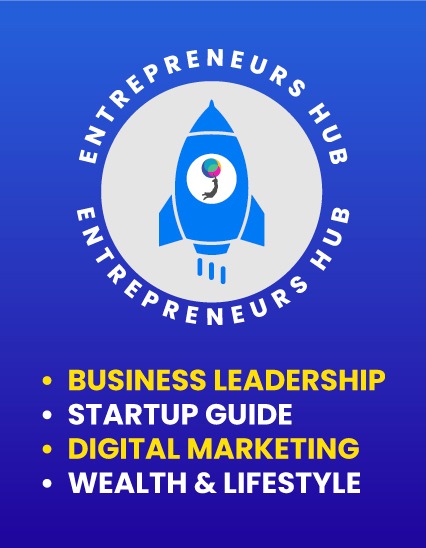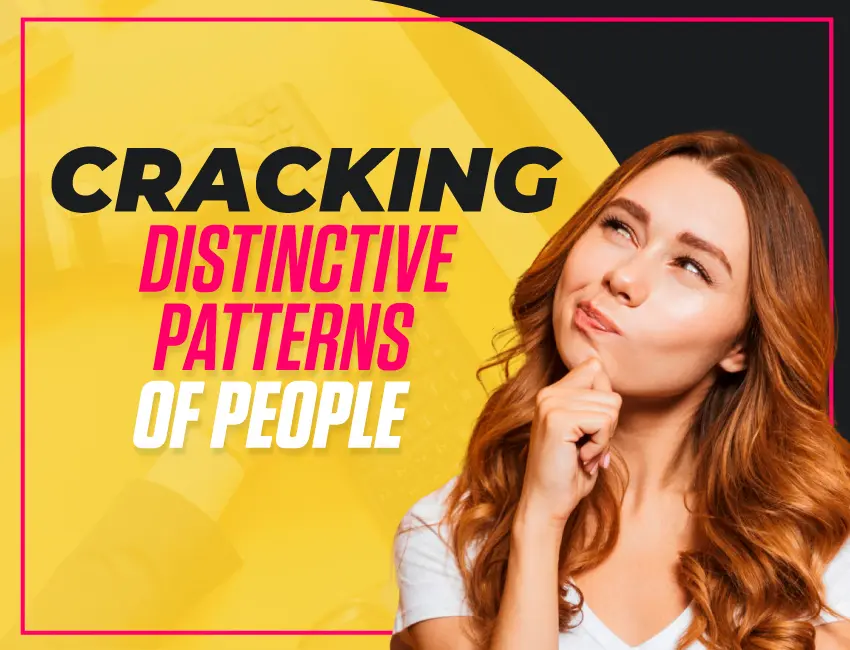Discovering the Motives Behind Our Actions

The underlying drivers that shape your every choice.
- What leads individuals to overindulge or overspend?
- What triggers people to resort to conflict or violence?
- Why do some individuals turn to drugs or contemplate ending their own lives?
- What fuels the craving for attention and the yearning for love?
Why do people behave the way they do? More specifically, why do you engage in the actions you take? There is always a motive behind your choices, even if you are not consciously aware of it. In fact, frequently people act in seemingly irrational and inexplicable ways, even to themselves. The question “Why do I do the things I do?” elicits countless answers, but all these reasons are connected to six primary driving forces known as the Six Human Needs, as identified by Tony.
The Six Human Needs are inherent to every single individual and profoundly shape our lifestyles. Irrespective of your country of origin, socioeconomic status, race, religion, color, creed, goals, desires, values, morals, or dreams, we all share these universal needs.
To attain a deeper and more meaningful understanding of yourself, it is imperative to comprehend these needs. By doing so, you will gain insight into why you act and react in certain ways. This awareness marks a crucial step toward making transformative changes in your life, enabling you to overcome obstacles and seize opportunities that ultimately lead to absolute fulfillment. Cease the comparisons with others and achieve your own unique success.
Seeking Stability
What Motivates Your Actions? The initial and prevalent answer lies within the need for certainty.
Certainty represents the pursuit of pain avoidance and a yearning for comfort, making it the most fundamental need shared by all individuals—a mechanism for survival. Certainty is a prerequisite for our daily functioning. Have you ever experienced uncertainty regarding something vital, such as your health or the well-being of a loved one? What about uncertainty concerning your job or whether you will generate sufficient income to meet your needs? When our sense of certainty is jeopardized, our ability to think clearly is compromised. In the face of significant uncertainty, nothing else seems to operate effectively.
While we all seek certainty, our approaches to achieving it vary. Some individuals establish routines to find a sense of certainty, while others lower their expectations and adopt a mindset of “I will never attain what I desire.” Certain individuals attempt to exert control over everything and everyone, while others seek their certainty through faith and prayer. Each person has their own unique method of meeting this basic need. The question is, does your pursuit of certainty empower or disempower you? While everyone prioritizes these human needs differently, you possess the power to choose what you focus on.
Embracing Variety
What Shapes Your Identity?
Understanding why individuals engage in certain actions isn’t a straightforward task. The Six Human Needs can sometimes appear contradictory, as our desires encompass not only the need for certainty but also the need for variety.
Certainty, while comforting, can also lead to boredom when it encompasses every aspect of our lives. Our passion and zest for life thrive in the realm of uncertainty, where variety reigns. It is through variety that excitement and adventure arise, making us feel truly alive. We require surprises and new experiences to facilitate personal growth. However, just like our pursuit of certainty, the ways in which we seek variety can be categorized as either beneficial, neutral, or detrimental.
For some, variety may manifest through the use of drugs, while others seek it through excessive eating. Some individuals explore extreme sports, while others find variety in engaging conversations or by setting new goals. Additionally, certain individuals derive variety from confronting significant challenges. The avenues to achieve variety are limitless. The crucial question remains: What is your approach, and is it fostering or hindering your well-being?
Seeking Significance
The Power of Feeling Important:
The third essential need is significance, the innate desire to feel that our lives hold meaning – that our existence is valuable, extraordinary, and in some way remarkable.
In an intimate relationship, the moment your partner begins to believe that something or someone holds more significance than you, profound pain ensues. This “someone” may be your child, a parent, a coworker, or an external party. The instant such a belief takes hold, the foundation of the relationship begins to crumble.
Beyond intimate relationships, individuals find significance through an array of avenues, which can be constructive, neutral, or destructive.
Consider, for instance, the significance derived from giving more than anyone else, channeling your uniqueness to make a positive impact on the world. There are no downsides to this approach, only boundless benefits. By aligning with an organization that ignites your passion, you can dedicate your time and resources to help it thrive. The power of generosity and compassion possesses the ability to reshape the world.
However, let us contemplate those who resort to violence. When someone brandishes a weapon, their significance in your life becomes a matter of life and death. Violence serves as the fastest and cheapest method to elicit a sense of significance from others. Regrettably, it not only destroys the individuals involved but also perpetuates a cycle of harm. Violence has plagued human history since its inception and will persist unless we recognize this fact and consciously choose to change.
When pondering the motives behind your actions, examine how you fulfill your need for significance. Do you strive to outwork everyone else? Do you possess unmatched sports knowledge? Do you express your uniqueness through distinctive fashion choices, multiple piercings, or tattoos? Are you drawn to particular brands or own luxury vehicles? Do you boast an extensive educational background and numerous diplomas?
There exist countless paths to achieve significance. What is yours?
The Power of Love and Connection
What Drives Human Actions? Love, Throughout History.
The inherent challenge with the need for significance lies in the requirement to stand out from the crowd. Similar to how the need for certainty reveals the need for variety, the need for significance unveils the profound need for love and connection.
People discover connection through friendships, sports, and community engagements. Some find it through their bonds with pets or artistic expression. Others seek it through meditation or immersing themselves in nature. Certain individuals find solace in their faith and through prayer.
Connection can be established through physical intimacy, even when it lacks depth or meaning. Some experience it during times of illness when they receive care and attention. For instance, a child may engage in disruptive behavior to gain attention and see that someone cares when positive attention is absent.
Adults exhibit similar patterns, often resorting to dramatic and painful methods, such as engaging in illegal or hurtful behavior. Additionally, individuals may manipulate their stories, twisting them into a negative narrative to make others feel more connected. Yet, this approach relinquishes personal power for the sake of fostering connection, ultimately undermining one’s well-being.
The catalyst for many individuals pondering the reasons behind their actions stems from discontent in their relationships. Here’s the truth: Most people settle. They settle for connection because they have been wounded by love. However, connection is mere crumbs compared to true love. True love is pure bliss, solace, and passion. On a scale from zero to 10, it’s a perfect 10. Where do you stand? Most people find themselves hovering around a four or six. They are neither truly happy nor unhappy enough to initiate change and create a better reality.
Embracing Growth and Contribution
The Fulfillment of Your Spirit:
While the initial four needs are crucial and fundamental, they alone cannot provide ultimate fulfillment. To genuinely experience fulfillment, one must address the final two needs: growth and contribution. These needs are rooted in the essence of your being, not limited to religious connotations but reflecting who you are at your core.
Remember, if you’re not growing, you’re stagnating. There is no such thing as a plateau or a comfortable, unchanging state. A relationship that fails to grow is slowly decaying. A business that remains stagnant is gradually fading away. So, where do you currently stand? Conduct an honest evaluation of your life. Identify areas where you are experiencing growth and reflect on the emotions this growth evokes. Simultaneously, pinpoint the areas in your life that are stagnating or withering, and acknowledge the associated suffering.
Contribution infuses life with purpose and meaning. By extending ourselves beyond personal boundaries, we enter a realm of abundance and compassion. That’s why Tony emphasizes, “The secret to living is giving.” When was the last time you freely contributed to another person or a cause outside yourself? How did that experience make you feel?
The Driving Forces Behind Your Actions
Although we all share the same six needs, our behaviors differ. But why?
Firstly, not all needs hold the same value for everyone. Some prioritize certainty as their foremost need, while others prioritize love and connection or significance. The primary need shapes the way we navigate our lives.
Secondly, even when two individuals are driven by the need for certainty, their methods of attaining it will vary. For instance, one person may establish strict rules and work tirelessly for long hours, while another person seeks certainty by adopting a pessimistic outlook, doubting every possibility.
Ironically, people often undermine their dreams and compromise their values in order to meet their needs. Understanding the intricate relationship between our emotions, actions, and the Six Human Needs is essential for developing compassion towards ourselves and others. If any of the following traits resonate with you, you may be surprised to discover their connection to your Six Human Needs.
- Deception: Even an inherently honest person may resort to lying when their needs outweigh their adherence to morals. They may lie during an interview to secure a more fulfilling job, fabricate stories on a date to create a sense of connection, or deceive their partner to avoid conflict and maintain certainty in the relationship.
- Infidelity: When someone cheats, it indicates that their relationship needs are unfulfilled. The sense of love and connection has diminished, and their partner no longer makes them feel significant. The initial spark and variety have given way to mundane certainty.
- Craving Attention: Do you find yourself constantly embroiled in drama? It’s likely a result of your own behavior rather than others’ actions. The desire to feel significant can drive individuals to make themselves the center of a problem, or they may crave variety in their lives.
- Unhealthy Habits: Vices often signify that our needs are not being met in healthy ways. Excessive alcohol consumption, indulging in drugs, or overeating bring temporary variety to our lives. Yet, we turn to these habits in search of certainty, knowing that they are detrimental but always available.
- Inability to Say No: It is easy to mistake being a “yes” person for leading a fulfilling life. It can provide a sense of significance and purpose. However, be cautious not to disregard your own needs. What you perceive as acts of kindness or obligation may actually stem from a need for certainty.
Now that you understand the Six Human Needs and their influence on your decisions, you can identify and rectify their negative impact on your life. By making empowering and positive shifts, you can redirect the course of your entire life.



















